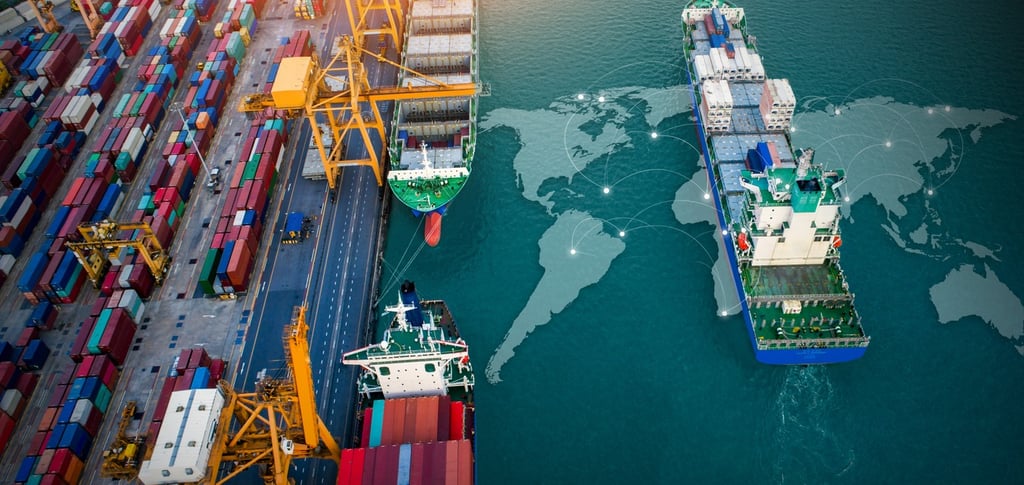Incoterms® Explained - Delivered Duty Paid (DDP)
March 31, 2025
Randy S. Kramer


Incoterms® Explained – 𝗗𝗲𝗹𝗶𝘃𝗲𝗿𝗲𝗱 𝗗𝘂𝘁𝘆 𝗣𝗮𝗶𝗱 (DDP)
𝗗𝗗𝗣, or “𝗗𝗲𝗹𝗶𝘃𝗲𝗿𝗲𝗱 𝗗𝘂𝘁𝘆 𝗣𝗮𝗶𝗱”, refers to an Incoterm® (International Commercial Term) used in international trade that outlines the duties of both the seller and buyer during shipping.
DDP is a shipping arrangement that imposes the highest level of responsibility on the seller. Beyond covering shipping expenses, the seller must also secure import clearance, pay taxes, and handle import duties. The risk of loss of the goods only shifts to the buyer once the goods are available at the destination port. Both the seller and buyer must agree on all payment terms and specify the destination before completing the transaction.
The advantages of DDP favor the receiver or buyer rather than the seller, as the receiver takes on less liability and lower shipping costs, placing a significant burden on the seller instead.
The seller arranges transportation through a carrier and is responsible for the associated costs, as well as for obtaining customs clearance in the buyer's country—including securing the necessary approvals from local authorities. Additionally, the seller may need to obtain an importation license. However, the seller is not responsible for unloading the goods.
The seller is responsible for supplying the goods, preparing the sales contract and associated documents, ensuring proper export packaging, coordinating export clearance, satisfying all customs, import, and export regulations, and covering all transportation expenses, including the final delivery to a designated location.
The seller is responsible for arranging proof of delivery and covering the costs of all inspections. They must also notify the buyer when the goods are delivered at the specified location. In a DDP transaction, if the goods are damaged or lost during transit, the seller bears the costs.
Under a DDP, arrangement, the seller isn't required to insure the goods. Nevertheless, it is advisable for both parties to agree on insurance coverage to safeguard against loss or damage in transit.
Generally, DDP is utilized when supply costs are relatively stable and easy to predict. Since the seller bears most of the risk, DDP agreements are typically utilized by experienced suppliers.
Note that a DDP arrangement may not be suitable for the seller in all situations. For example, shippers may not always be able to handle customs clearance for goods in foreign nations. The customs regulations for DDP shipments differ from one country to another. In certain countries, the import clearance can be complex and time-consuming, making it more advisable for the buyer—who presumably understands the process better than the seller—to take charge of it.
BOUTIQUE INTERNATIONAL TRADE, TRANSPORTATION & LOGISTICS LAW FIRM
Providing international trade, transportation & logistics law services respecting the law of the US, Canada, and the UK
E: info@kramerintlaw.com
T (US): +1 (347) 588-4060, Ext. 1010
© 2026 Kramer International Law.


T (Can): +1 (514) 470-0717, Ext. 1010
The information on this website is for general information purposes only. Nothing on this site should be taken as legal advice for any particular case or situation. This information is not intended to create, and receipt or viewing does not constitute, an attorney-client relationship. Attorney Advertisement.
CONTACT FORM
T (UK): +44 20 3996 9356, Ext. 1010
